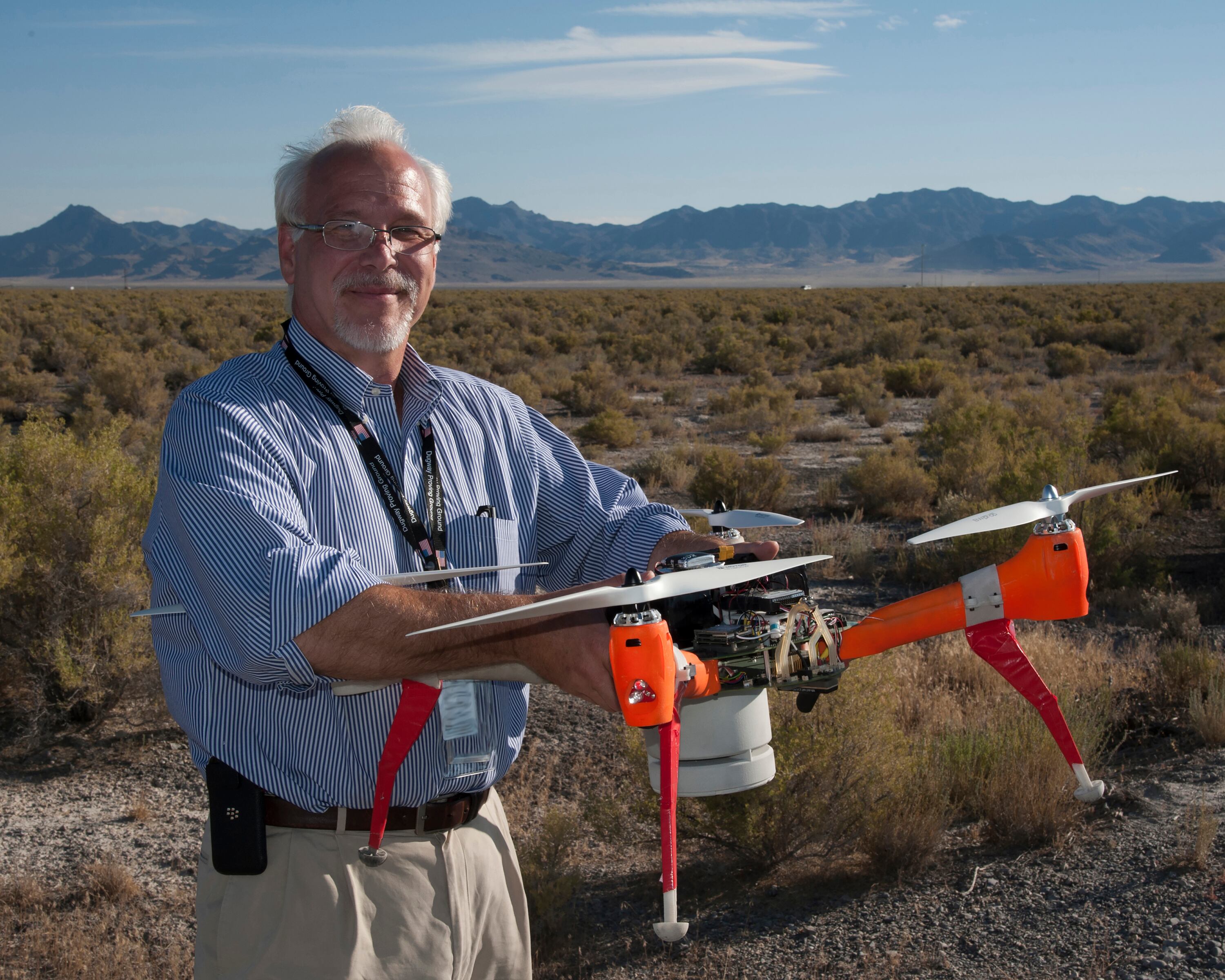Drones already provide eyes in the sky for soldiers in the field, but a new Army program aims to add another sense or two.
Researchers with Army Edgewood Chemical Biological Center tested a quadcopter dubbed Deep Purple during the SK Challenge at Utah's Dugway Proving Ground last month, joining dozens of other developers trying out hardware against simulated chemical agents.
Chemical sensors on the drone were able to detect such an agent, researches found. A biological-agent sensor also succeeded, but did so while mounted to an unmanned Mobile Detection Assessment and Response System vehicle, known as MDARS.
That sensor package "needs to be miniaturized" for use with the aerial drone, ECBC research chemist Alan Samuels said in a news release. "The SK Challenge proved its value to ECBC by revealing what our system does well and where it needs more work. We'll come back next year having built upon what we learned this time."
Researchers have designed the drone payloads to be modular, Samuels said, allowing units to swap out detection devices based on likely threats. Soldiers can receive information from the drone from up to two miles away, in real time.
Soldiers seeking that long a lead time to detect a possible gas attack now need to rely on a Joint Services Lightweight Standoff Chemical Agent Detector, which is mounted on a modified Stryker and can detect threats up to two kilometers away.
The sensor array itself -- the Array Configurable of Remote Networked Sensors, or ACORNS -- wouldn't have to be drone-based, Samuels said: "It could just as easily be delivered via ground robotic systems or even projected onto the battlefield by a launcher or gun tube."
Significant testing remains before soldiers will see such materials in the field, Samuels said. The drone is not part of a larger Army program, and there are no concrete plans to incorporate deployable sensor payloads into existing gear sets.
It's also unclear whether the drone will get to keep its name, one it shares with the English rock band responsible for the hit " Smoke on the Water."
"This reference has variously been attributed to the nickname we gave our quad copter," Samuels said in an emailed response to questions. "We like to suggest that the name is a reference to the joint (purple) nature of the chemical and biological defense program."

Joseph Corriveau, director of the Army Edgewood Chemical Biological Center, holds the Deep Purple drone, which was tested last month at Utah's Dugway Proving Ground and was able to intercept a chemical agent simulant cloud and identify the simulant.
Photo Credit: Army
Kevin Lilley is the features editor of Military Times.




